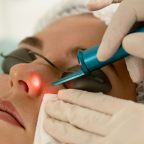
Beyond Brushing: Essential Steps for Optimal Dental Health
Maintaining good oral health involves more than just brushing your teeth twice a day. While daily brushing and flossing are essential, there are additional steps you can take to ensure your mouth, teeth, and gums stay in optimal shape. Read on for a comprehensive guide to going beyond the basics for complete dental care.
Daily Oral Hygiene Habits
The foundation of good oral health is establishing smart daily habits. Here are some tips for keeping your teeth sparkling clean:
- Brush at least twice per day for two minutes each time. Focus on angling the bristles along the gumline to remove plaque. If you struggle with a manual toothbrush, you may find an electric toothbrush does a better job.
- Floss once per day to clear out debris between teeth that your toothbrush cannot reach.
- Use an antibacterial mouthwash to rinse away lingering bacteria.
- Drink plenty of water to wash away food particles and keep your mouth moist.
- Limit sugary and acidic foods and beverages that can erode enamel.
Staying diligent with daily brushing, flossing, and rinsing will go some way to preventing cavities and gum disease.
Regular Dental Cleanings and Checkups
Professional cleanings and oral exams are crucial for preventing problems and catching issues early. The American Dental Association recommends the following schedule:
- Children: Cleanings and checkups every six months. These should begin as soon as the first teeth come through.
- Adults: Cleanings every six months, checkups once per year
- Seniors: Cleanings and checkups once per year
More frequent visits may be recommended for those at high risk for cavities or periodontal disease. During cleanings, dental hygienists will remove built-up calculus (tartar) below and above the gumline that you cannot remove with flossing and brushing alone.
The dentist will examine your teeth and gums for signs of decay, infection, hormonal changes, oral cancer and more. Regular visits allow problems to be detected in the early stages when they are easiest to treat.
Sealants and Fluoride
Dental sealants provide an extra layer of protection against cavities for teeth vulnerable to decay. Sealants are thin plastic coatings painted onto the chewing surfaces of back molars to seal out bacteria and food particles. Getting sealants placed as soon as molars come in can prevent 80% of cavities in children and adolescents.
Fluoride strengthens enamel to make teeth more resistant to acid attacks. Most public drinking water sources contain supplemental fluoride. Use fluoride toothpaste daily and consider fluoride treatments at the dentist to maximize the cavity-fighting power of this mineral.
Dental Fillings and Crowns
Over time, dental cavities can spread deep into the tooth structure. When a cavity extends into the inner pulp canal, a root canal and dental crown will be required. For less severe decay confined to the outer enamel, a tooth-colored composite filling can repair the damage.
Neglecting small cavities leads to more extensive destruction and necessity for root canals down the road. Get all cavities filled promptly to protect tooth integrity and prevent the need for more involved treatment later.
Clear Aligners for Teeth Straightening
Misaligned, crooked, or crowded teeth are not just an aesthetic issue. They also make teeth harder to clean and more prone to wear, chips, cavities and gum disease. Orthodontic treatment, such as clear aligners, can straighten teeth for improved oral health and appearance.
Clear aligners are removable plastic trays that incrementally shift teeth into place over several months of use. They offer an inconspicuous approach to straightening compared to metal braces. Aligners allow you to maintain your regular oral hygiene routine since you remove them to eat and brush.
Treatment times for clear aligners at home range from 10-24 weeks depending on the complexity of bite correction needed. Candidates must have fully erupted adult teeth to begin treatment. Clear aligners apply gentle pressure to nudge teeth into alignment without requiring extraction for crowding unlike traditional braces.
Consider affordable clear aligners for teeth if you want to improve your smile and oral health through subtle, gradual teeth straightening.
Smoking Cessation
Kicking smoking habits and avoiding tobacco is one of the best things you can do for your overall and dental health. Smoking increases risks for gum disease, tooth discoloration, tooth loss, oral cancer, and more. The sooner you quit, the faster your mouth will heal, and the risk will drop. Talk to your dentist and doctor about quitting options. Additionally, try to avoid second-hand smoke exposure whenever possible, as this can negatively impact dental health as well. Support groups, nicotine patches, gum, and prescription medications can all help you overcome tobacco cravings and quit for good.
Healthy Diet
Food choices affect the health of your teeth and gums, too. Follow a balanced diet rich in whole foods like lean proteins, vegetables, fruits, whole grains, and dairy. Limit the amount of sugary and starchy treats that feed the bacteria that promote cavities and periodontal disease. Stay hydrated by drinking plenty of water each day as well.
Night Guards
If you wake with sore, sensitive teeth or have been told you grind your teeth at night, ask your dentist about a custom night guard. These plastic mouth trays worn while sleeping cushion teeth from damage caused by clenching and grinding due to stress or sleep apnea. Wearing one can prevent tooth damage, headaches, jaw pain, and TMJ symptoms.
Oral Cancer Screenings
Routine oral cancer screenings should be part of your regular dental visits, especially if you have any risk factors. Dentists will examine all soft tissues in the mouth for abnormal changes that could indicate cancer. Early detection drastically improves prognosis for oral cancer patients. Visiting the dentist regularly improves the chances of catching any problems at treatable stages.
Take Dental Health Seriously
Follow through with the steps outlined here to protect your teeth for lifelong optimal function and appearance. Good dental care prevents painful problems, expensive repairs, tooth loss, and worse illnesses down the road. Beyond brushing, there are many simple, positive actions you can take to maintain excellent oral wellbeing. Consult your dentist to discuss dental health tips tailored to your unique needs.
Additional Tips for Optimal Dental Health
Here are some extra pointers for keeping your mouth in top shape:
- Use interdental cleaners like floss picks and water flossers if you have trouble flossing manually. They offer an easy way to clean between teeth thoroughly.
- Consider switching to an electric toothbrush. Electric brushes with oscillating heads remove plaque more effectively than manual brushing.
- Have your dentist apply medicated fluoride varnish treatments for added protection against cavities. The effects last for months.
- Whiten your teeth occasionally with over-the-counter whitening strips or custom trays from your dentist for stain removal and a brighter smile.
- Use tongue scrapers to remove bacteria buildup from your tongue, a major cause of bad breath. Scraping also reduces plaque levels.
- Drink beverages like coffee, tea, wine, and soda through a straw to bypass teeth and minimize staining risks.
- Chew sugar-free gum with xylitol to stimulate saliva flow and neutralize mouth acid between meals.
Take a proactive approach to dental care for excellent long-term health and beauty for your teeth. See your dentist regularly and follow healthy daily habits. Going above and beyond basic brushing makes a big difference!



















